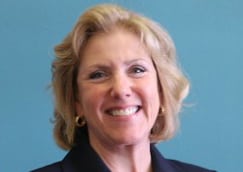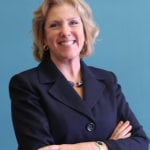When it comes to college and career readiness, afterschool and expanded learning are not always the first approaches that come to mind. These under-utilized opportunities, however, provide students with valuable early exposure to college standards, practical career skills, and helpful mentors or advisors.
I recently spoke at a gathering of 21st Century Community Learning Centers (21st CCLC) directors from five states in Louisville, KY about how afterschool programs can promote college and career readiness. I was fortunate to share the podium with the wonderful Kentucky Commissioner of Education, Terry Holliday; afterschool guru and all-around great guy, Terry Peterson; and Lt. Governor Jerry Abramson, who is supporting and promoting an exciting college access program in KY called Close the Deal.
In my remarks, I provided an overview of how afterschool, expanded learning, and summer learning help students prepare for college, careers, and civic engagement. These comments were based on an article I co-wrote with my colleague at AYPF, Andrew Valent, that was published in the fine compendium that Terry Peterson edited in 2013 entitled, Expanding Minds and Opportunities: Leveraging the Power of Afterschool and Summer Learning for Student Success.
In our article, we laid out several ways that afterschool programs help youth prepare for college and careers, in addition to strengthening, supplementing, and augmenting academic knowledge:
- They engage youth in meaningful and relevant activities
- They help youth see connections between what they are learning and future aspirations
- They allow kids to apply their knowledge in hands-on projects
- They help develop social and emotional skills
- They give students a chance to express their opinion and develop independence
- They connect youth to a competent, caring adult
Afterschool and summer learning programs that have a focus on college preparation set high expectations that all youth will go to postsecondary education, and they back that up by taking youth on college tours, offering summer sessions on a college campus, or allowing them to meet current college students from similar peer groups. Many programs also provide college counseling and advisement, help students with selecting the right college for them – not just settling for the local college in town – provide assistance writing college essays and completing application forms, and last but not least, help parents and students navigate the confusing world of student financial assistance and applying for aid. All of these activities help youth and their families see that college is possible, and the culture of many afterschool programs drives youth and supports them in their quest for postsecondary education. As a side note, many afterschool programs are focused on encouraging women and underrepresented students to pursue college and a career in the STEM fields with positive results.
Afterschool and summer learning programs also help prepare young people for the world of work and provide much-needed career planning. Afterschool programs can bring in employers and professionals to expose youth to different careers and let them learn about the pathways to get there, such as what type of education is needed. Other afterschool programs give youth a chance to participate in service learning, internships, or apprenticeships where youth take on real work and learn skills such as planning, financing, problem-solving, communications, teamwork, applying knowledge to solve problems, meeting the demands of your boss, and being on time. An added benefit is that some apprenticeships provide a stipend to the youth. Even programs that take youth (at any age) to visit workplaces and offices expose students to new possibilities that could lead to career aspirations. And lastly, many programs promote mentoring relationships between students and professionals.
While many afterschool and summer learning programs focus on college and career readiness, many others could be more intentional about this work. Here are some ways to do that:
- Include college and career readiness as an explicit part of the mission of your program.
- Focus on the students who are traditionally underserved, especially first-generation, low-income, or minority students who need extra supports to gain the skills for college and career success.
- Think about the transition points, especially from middle school to high school and high school to college and work, and ways to support youth as they transition from one institution or system to the next.
- Build strong partnerships across K-12, postsecondary education, employers, workforce training, and college access programs so students have access to a wide range of supports.
Afterschool, expanded learning, and summer learning programs can support our youth in many ways, and especially for older youth, they can be critical players in the push to have more youth be successful in college and careers. I’d love to hear about programs that are doing this work, so we can continue to learn from your experiences.
Betsy Brand is the Executive Director of the American Youth Policy Forum






